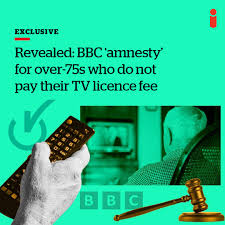The Importance of the TV Licence in the UK

Introduction
The TV licence is a significant aspect of broadcasting in the United Kingdom, serving to ensure that the public broadcaster, the BBC, is funded adequately while maintaining its independence. As many households rely on television as a primary source of news and entertainment, understanding the relevance of the TV licence and its financial implications is crucial for UK residents.
What is a TV Licence?
A TV licence is a legal requirement for anyone who watches or records live television, or uses iPlayer in the UK. The current cost of a standard colour TV licence stands at £159 per year, while a black and white licence costs £53.50. The funds raised from these licences go directly to the BBC, supporting its operations, including television programming, radio broadcasts, and online content.
Recent Developments
In recent months, discussions around the TV licence have intensified. The BBC has faced criticism over the relevance of the licence fee, especially as viewing habits shift towards on-demand and streaming services like Netflix and Amazon Prime. In a report from August 2023, the UK government suggested that a review of the funding model for the BBC was necessary to adapt to changing viewer behaviours.
Moreover, there has been a noticeable increase in evasion rates, with reports indicating that around 200,000 people per year face prosecution for not obtaining a licence. The government has been urged to reconsider the penalties associated with licence evasion, amid calls for more transparent funding models. Some public figures, including former BBC executives, have proposed that the licence itself may need to be re-evaluated, with suggestions including alternative funding methods such as a subscription model.
Public Opinion and Future Considerations
Public opinions on the TV licence are mixed. Some believe that the fee is a small price to pay for quality content, while others view it as an outdated system that fails to accommodate modern viewing preferences. A survey conducted by YouGov in September 2023 revealed that only 47% of respondents supported the continuation of the TV licence fee, a decline from previous years.
Looking ahead, experts anticipate that the debate surrounding the TV licence will continue as technology evolves and viewing patterns change. Policymakers may need to consider innovative approaches to fund public broadcasting without compromising quality or accessibility.
Conclusion
The TV licence remains a vital yet contested component of public broadcasting in the UK. As discussions continue, it is important for viewers to stay informed about how the licence works and its impacts on content production. Understanding the implications of not having a license is also essential to avoid potential legal consequences. The future of the TV licence is uncertain, but its relevance in shaping how broadcast media is consumed in the UK cannot be underestimated.









